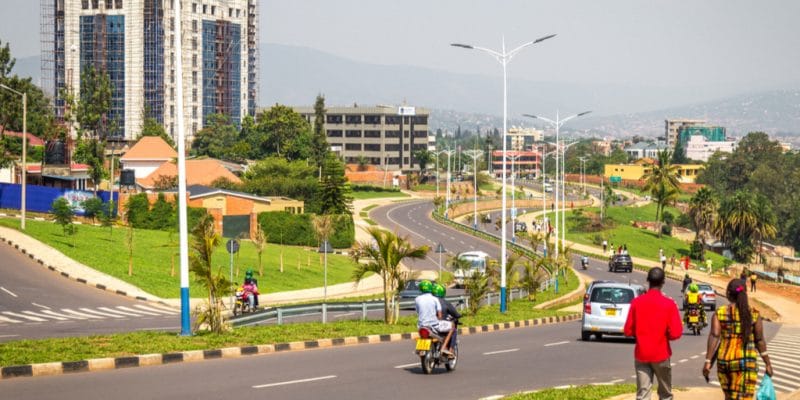France will co-finance 20 sustainable city projects in 15 African countries with €1.5 million. These urban developments are being implemented in the framework of decentralised cooperation between African and French cities and follow a call for tenders launched by France in preparation for the Africa-France Summit on Sustainable Cities to be held in Bordeaux in June 2020.
The Africa-France summit scheduled for June 2020 is already having concrete repercussions in several African cities. A series of 20 projects have been selected by the French Ministry of Foreign Affairs as part of the preparations for this event. All these projects will be implemented with the aim of encouraging decentralised cooperation and experience sharing between African and French cities.
These initiatives are mainly in the following domains:
– Access to essential services, in particular water and sanitation and waste treatment (recovery of household waste), and promotion of better management of local resources through the circular economy.
– Training and capacity building of local actors through the capitalisation and exchange of good practices (support for the setting up of inter-municipalities, management of port areas, setting up of an eco-neighbourhood…),
– Education and citizen participation in the development, implementation and monitoring of urban policies.
| The 20 “Sustainable cities” projects in Africa supported by France | ||
| Beneficiary in Africa | French partner | Nature of the projet |
| Amidoul Foundation (Algeria) in partnership with Wilaya de Ghardaia (Algeria) | AViTeM Conseil régional Sud-Provence-Alpes-Côte d’Azur | The development of a resilient and sustainable city on the Eurafrican hinge
|
| Regional council of the Upper Basins (Burkina Faso) Conseil | Auvergne-Rhône-Alpes Regional Council | Coaching of TCs in the Upper Basins in the definition of a regional and local public policy on the circular economy |
| Ouagadougou (Burkina Faso) | Lyon metropolis | Enhancing the technical capacities of municipal departments in the city in sustainable urban development, local economic development and culture. |
| Gabès (Tunisia) | Saint-Brieuc | Support in an eco-neighbourhood initiative |
| Zorgho city council(Burkina Faso) | City council of Grand Reims
|
Strengthening of local governance, preservation and enhancement of resources and development of networking between French and Burkinabé territorial stakeholders. |
| Sèmè Podji (Benin) | Hauts-de France regional council | Sèmè City, smart and sustainable city |
| Soavinandriana (Madagascar) | Billère | Construction of micro-infrastructures to meet the needs of access to drinking water and sanitation and water education through an exchange programme between schools in the two cities on the theme of water and sanitation. |
| Douala (Cameroun) | Bordeaux Metropolis | Douala, sustainable metropolis |
| Regional council of Itasy (Madagascar) | Regional council of NouvelleAquitaine | Support Programme for Local Governance in Itasy |
| Kaya (Burkina Faso) | Châtellerault | Improving communal waste management |
| Bamako (Mali) | City council of Angers Loire Metropolis | Training, capitalization and exchanges on the water and sanitation sectors |
| Autonomous District of Abidjan (Ivory Coast) | Nice | Helping to set up the system to combat air and noise pollution in Abidjan and raising awareness of sustainable development
|
| Ouagadougou (Burkina Faso) | Grenoble | Strengthen local governance, the skills of local actors and citizen participation based on the 4 pillars of sustainable development (political, social, economic and environmental). |
| Rabat Salé Kenitra Regional Council (Morocco) in partnership with Rabat (Morocco) | Rhône-Alpes regional council of AuvergneRhône-Alpes | Pilot project for the organisation of a waste collection and recovery chain through recycling in an urban environment |
| Moundou (Tchad) | Poitiers | Local development to strengthen the Moundou Community (Chad) and its participatory and citizen governance |
| Palmarin Facao (Senegal) | Limoges Metropolis | Capacity building of the local authorities of the Inter-communal Council of the Municipalities of the Sine Occidental (ICSO) through the structuring of a sustainable waste management system. |
| Kindia city council (Guinea) | Nantes Metropolis | Implementation of the public policy of access to drinking water at the level of Kindia and its future intermunicipality. |
| Dakar (Senegal) in partnership with Kays (Mali), the Regional Council of Nouakchott (Mauritania) and the Bamako District Council V (Mali). |
Southern metropolitan area of Grand Paris |
For shared governance 2: to continue and strengthen the collective dynamic initiated in the framework of the partnerships linking Grand Paris Sud, the cities of Bamako, Kayes and Dakar, the Mauritanian Association of Southern Municipalities and the Nouakchott region, through a circular economy approach. |
| Accra Metropolitan Assembly (Ghana) | Paris | Strengthening Accra’s expertise in household waste management and local governance in the framework of multi-stakeholder partnerships |
| Huye District (Rwanda) | Castres | Development of e-health at Kabutare hospital |
The selection of these projects follows a call for tenders, launched in December 2018, aimed at supporting decentralised cooperation projects that fall under the theme “sustainable cities in Africa”. The projects are led by French cities, and must be implemented within the framework of decentralised cooperation with African cities. By March 2019, ten projects in partnership with six African countries (Burkina Faso, Madagascar, Cameroon, Mali, Benin and Tunisia) had caught the attention of the organisers. The organisers subsequently extended the deadline for the call for tenders to expand the investment opportunities. This decision resulted in the registration of ten new projects, developed in collaboration with nine African countries, including Algeria, Chad, Ivory Coast, Morocco, Senegal, Guinea, Mauritania, Ghana, Mauritania, Morocco and Rwanda. The final list includes the following projects, among others: Strengthening communal waste management (Burkina Faso), Douala, a sustainable metropolis (Cameroon), Sèmè city, an intelligent and sustainable city (Benin), support for an eco-neighbourhood approach (Tunisia), development of e-health at Kabutare hospital (Rwanda).
For all these projects, the French government, through the Ministry of Foreign Affairs, is co-financing projects with an estimated total cost of around €1.5 million.
Luchelle Feukeng






